Advantages of trade agreements
Up to now, Vietnam has signed and negotiated a total of 20 free trade agreements (FTAs) with countries and regions, of which 16 FTAs are in effect, including many new generation agreements such as the Comprehensive and Progressive Agreement for Trans-Pacific Partnership (CPTPP), the Vietnam - EU Free Trade Agreement (EVFTA), the Vietnam - United Kingdom of Great Britain and Northern Ireland Free Trade Agreement (UKVFTA), the Regional Comprehensive Economic Partnership Agreement (RCEP)...
 |
Economist Nguyen Tuan Viet. |
According to statistics, these FTAs have opened the door to trade with more than 60 countries and territories, accounting for about 90% of global GDP. Thanks to taking advantage of FTAs, Vietnam has been in the top 20 countries with the largest trade turnover in the world for many years. In 2024 alone, total export turnover reached 786 billion USD, of which exports reached over 405 billion USD. Some of Vietnam's major export markets in 2024 such as exports to the United States reached 119 billion USD, to the EU reached 52.1 billion USD (up 19.3%), to Canada reached about 7.5 billion USD (up 22.7%)...
According to Mr. Nguyen Tuan Viet, General Director of Vietgo Company - who has more than 20 years of experience in the export sector, the exploitation of FTAs is still not commensurate with the potential we have. "Many businesses, especially small businesses, still lack information about the market as well as export skills," Mr. Viet said, adding that the room for Vietnamese businesses to access the world market through FTAs is huge. "This is a golden time for our country's businesses to develop and take off. The opportunity for Vietnamese people to get rich is huge," Mr. Viet affirmed.
Vietnam is currently among the countries with the largest number of FTAs in the world, and is still negotiating to expand further. “This is a ‘soft barrier’ but very effective in helping Vietnamese businesses reduce their dependence on the US and diversify their export markets,” Mr. Viet commented.
According to the analysis of expert Nguyen Tuan Viet, both private enterprises, state-owned enterprises and foreign-invested enterprises (FDI) in Vietnam are facing very good opportunities. "Currently, the state's mechanism is very good," said Mr. Viet, analyzing that in Vietnam, just establishing a business is enough to be eligible to export. In addition, the procedures for starting a business in Vietnam are also very easy. "For example, in Japan, starting a business is very difficult. They want to open a USD account at a bank, which is very difficult, complicated, time-consuming, and they need to prove their assets and money," said the expert, adding that in Vietnam, business and trade are encouraged by the state, creating maximum conditions.
Moreover, businesses operating in Vietnam have an advantage in terms of geographical location. Our country has a long coastline, located on the international shipping route. Goods going to seaports and accessing the world market are very easy. That is Vietnam's logistics advantage. "There are products that cannot be sold without logistics advantages. For example, exporting cement, construction materials, coal and ores. These are very heavy goods, if transported by road or air, the shipping cost is very high, so we need the advantage of sea logistics for export," Mr. Viet analyzed.
According to expert Nguyen Tuan Viet, the strengths of Vietnamese goods when approaching foreign markets are price and quality. Currently, Vietnam's strong products such as textiles, footwear, wooden furniture, consumer goods... are very popular in the world market thanks to their price and quality.
 |
Vietnam has a logistics advantage with a long coastline and proximity to important international shipping routes. |
According to Mr. Nguyen Tuan Viet, the biggest difficulty for Vietnamese enterprises when going abroad is commercial skills. In our country, there are many manufacturing companies but very few trading companies to sell those products abroad. Currently in Vietnam, mainly companies that produce their own goods export their products abroad. "While many enterprises, especially small and micro enterprises, lack commercial skills, lack export experience, and do not even know how to approach international customers through which channels," Mr. Viet said, and believes that if we develop more trading enterprises to support sales for manufacturing enterprises, the development opportunities for our enterprises will be better.
“The international market is very large, there are many domestic goods, but the stages of marketing, promoting, and approaching foreign markets need to be paid attention to and further developed,” Mr. Viet commented.
Need to diversify the market
Regarding the risk of large countries imposing taxes, expert Nguyen Tuan Viet said that Vietnamese businesses need to expand their markets and avoid being too dependent on one or a few single markets.
Mr. Nguyen Tuan Viet also emphasized a new trend: Countries and markets are “looking for each other” to no longer depend too much on the US. The center of this supply chain shift will be Asia - the cradle of global production, in which Vietnam is considered a country with great advantages thanks to cheap labor, convenient logistics, especially by sea.
 |
 |
Mr. Nguyen Tuan Viet works with foreign partners, exporting Vietnamese goods to the world. |
A good sign shared by Mr. Viet is that recently, his company Vietgo has received a series of orders from markets that were previously difficult for Vietnam to access, such as South America, Africa, Canada, etc. “This shift in demand proves that the world is really looking for each other, opening up opportunities for Vietnam to reach out globally. And in this context, small and medium enterprises are the ones that benefit the most. We don’t need to do anything big, just need to do well in production, control quality and ‘nod’ at the right time with partners to be able to catch up with the new globalization flow. This is the golden time, and if we miss it, it will be very difficult to have a second chance,” the expert emphasized.
Mr. Nguyen Tuan Viet said that the Vietnamese business community is facing two big “storms”. The first is the “storm” of tax policy and the “storm” of opportunities when the world market restructures, creating a new shift in trade.
“We cannot avoid the first storm, but we can definitely ‘catch the wind’ from the second storm to break through. This is not the time for hesitation,” the expert recommended.
Source: https://baophapluat.vn/thoi-diem-vang-de-doanh-nghiep-viet-nam-but-pha-post548128.html



![[Photo] Prime Minister Pham Minh Chinh chairs conference on anti-smuggling, trade fraud, and counterfeit goods](https://vphoto.vietnam.vn/thumb/1200x675/vietnam/resource/IMAGE/2025/5/14/6cd67667e99e4248b7d4f587fd21e37c)




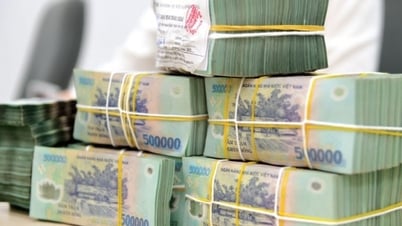
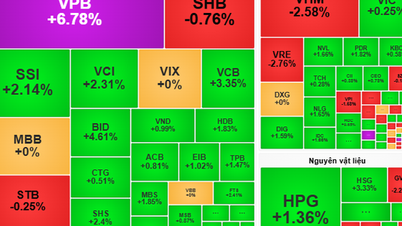

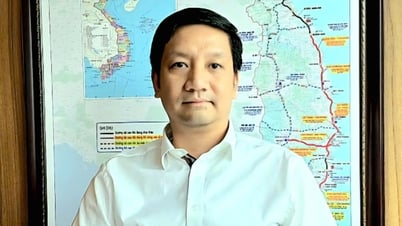











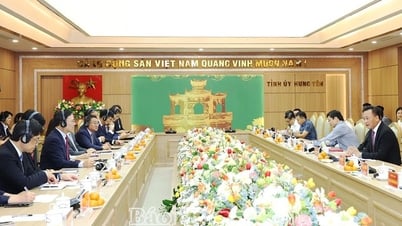















































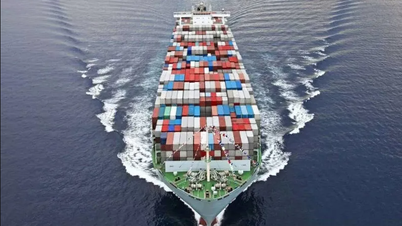

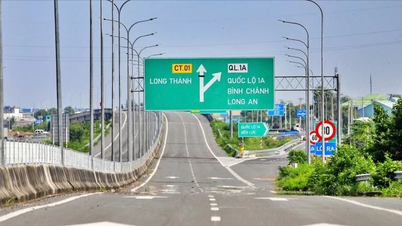

















Comment (0)